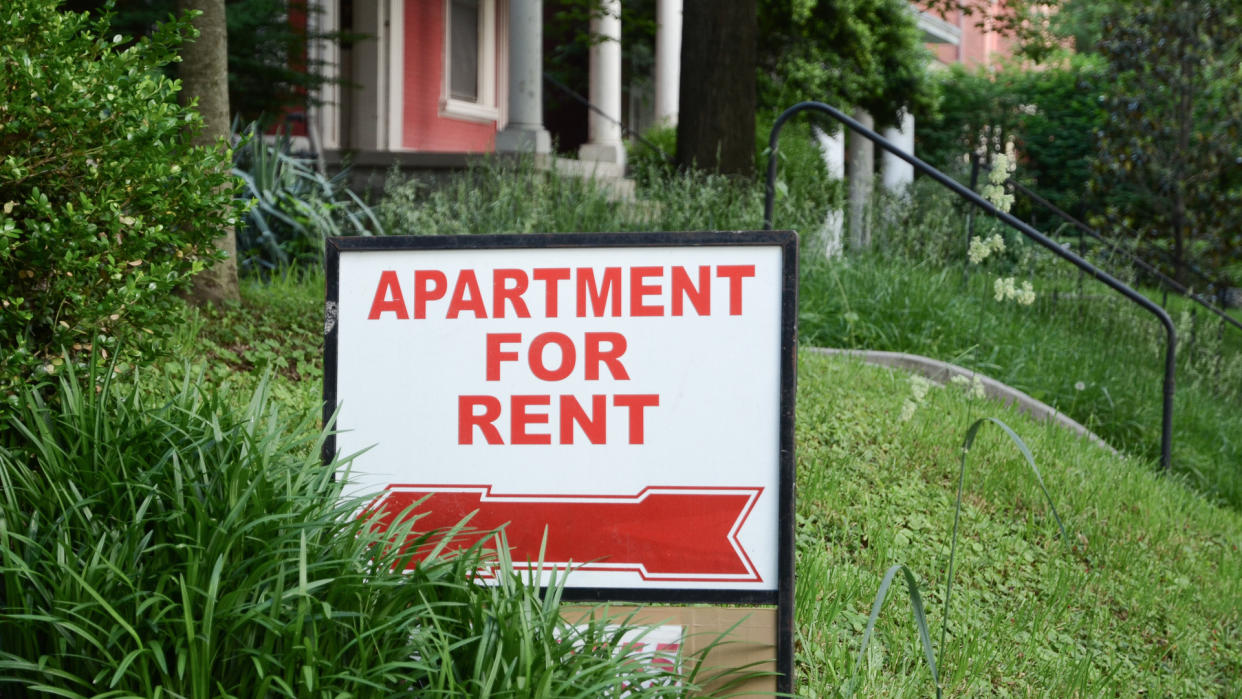7 Common Financial Mistakes Renters Make

Around 36% of U.S. households are occupied by renters, according to Census Bureau data. Among people under 35, 66% are in rentals, and more than 60% of people in the lowest income quartile rent their homes.
So, in general, those with less capital are more likely to rent — but this isn’t always the cheaper option.
Renting has grown exponentially more expensive as the U.S. emerges from the pandemic. With COVID-19 deals dead and gone and inflation skyrocketing, many renters are being pushed out of their homes and are fruitlessly searching for some semblance of affordability.
Experts: Here’s How Much You Should Have in Your Checking Account
More: With a Recession Looming, Make These 3 Retirement Moves To Stay On Track
Unfortunately, if you don’t have the money for a down payment (or don’t want to buy in this hot housing market), navigating the rental market is what you’re left with. But there are some cost-effective ways to do this. Avoid these common mistakes made by renters if you want to keep money in your bank account.
Renting More Than You Need
When searching for a rental, carefully consider how much space you actually need — and how much you can afford.
“Yes, it is very tempting to opt for a three-bedroom place to ensure you have plenty of room. But if it’s just you, or you and a partner, or even you, a partner and pets, you may not need that much space,” said Julie Ramhold, consumer analyst with DealNews.com.
“Once you decide on a community, take a look at all the floorplans and be honest about which one you actually need. If you can get away with a one-bedroom, do it. You’ll save on rent, and that means you can put those savings toward other things, like paying off debt or something fun like taking an epic vacation.”
Live Richer Podcast: How To Leverage Your Investments
Only Looking at Apartments
“If you’re only looking at traditional apartment buildings and communities, you’re potentially missing out,” Ramhold said.
Ramhold advised looking for alternatives such as condos, townhomes, guest houses or even independently owned apartments in converted buildings.
“Usually these are handled by individual landlords rather than property management companies, which could work in your favor, as they may be less likely to pointlessly raise rent year after year and may form a relationship with you unlike an office of people that changes every few months,” Ramhold said.
“However, there’s also a downside – if the landlord isn’t attentive and doesn’t seem to care, you could find yourself footing the bill for repairs both major and minor at the property.”
Not Investigating the Neighborhood
“If you’re serious about a rental, I would recommend knocking on a few neighbors’ doors to inquire about the building’s upkeep and the neighborhood’s safety. You may also consult your local police department or websites like crimereports.com for information on crime patterns,” said Ellie Shippey, e-commerce growth specialist at EZContacts.
Shippey also recommends you return to the property at night. That previously quiet street corner may look very different after dark, and you don’t want to wait to find out after move-in.
Failing To Protect Your Security Deposit
“One of the most common ways to lose money on an apartment rental is from your security deposit at the final inspection,” said Carter Seuthe, CEO of Credit Summit. “A great way to avoid this is to document the condition of your apartment as thoroughly as possible when you first move in.”
Seuthe suggested taking pictures of every room and focusing on any damages you can find, however minor. You should also take videos of the appliances in operation. This way, you can protect yourself against unwarranted charges when you’re moving out.
Forgetting About Additional Fees
“Most of the time while renting a property, people only look at the rent but fail to consider the other monthly expenses associated with a property, like the utilities. In many cases, the property owners include these costs in the rent; however, in some cases, the renter is responsible for those bills,” said Lyle Solomon, principal attorney at Oak View Law Group.
“The lease papers should mention in detail what the rent will cover and what will be excluded. You should also check whether parking is included in the rent and if it is not, how tough is it to get a parking spot near that area.”
Taking on Repair Costs
If you’re about to DIY-fix your leaky faucet, think again.
“As a renter, you shouldn’t repair damages by yourself. If you try to fix a problem but end up in an even worse situation, you’d be responsible for making the payments,” Solomon said.
Before you take action on any fixes, reach out to your landlord via text or email to inquire about the problem. You may be surprised how many things they’ll attend to (some landlords even replace lightbulbs). However, you may also be disappointed if they are negligent and refuse to address your problem.
“A renter can take legal action against the landlord if they do not do maintenance of the property,” Solomon said.
Buying Brand-New Furniture
“Buying expensive furniture for a temporary place doesn’t make sense,” Solomon said. That’s not to say you shouldn’t own nice things or decorate your home how you like. But you may want to watch your spending when doing so.
“You should look for secondhand or upcycled furniture instead. You can look for them in thrift stores, and you’ll find them online as well,” Solomon said.
Facebook Marketplace is one of the best spaces online to find cheap or free furniture near you — and often it’s in near-new condition.
More From GOBankingRates
Disclaimer: information was compiled on and accurate as of July 21, 2022.
This article originally appeared on GOBankingRates.com: 7 Common Financial Mistakes Renters Make

